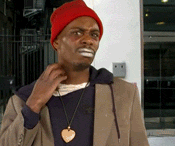Dr. Anthony Fauci you can look to be fired.
The narcissists will not like these remarks.
and the narcissist waste little time .......
MORE ON TRUMP?S TWEETS
Read the full article on President Trump?s flurry of messages defending his handling of the coronavirus.
Trump reposts a message on Twitter that is critical of Dr. Fauci.
President Trump publicly signaled his frustration on Sunday with Dr. Anthony S. Fauci, the federal government?s top infectious disease expert, after the doctor said more lives could have been saved from the coronavirus if the country had been shut down earlier.
Mr. Trump reposted a Twitter message that said ?Time to #FireFauci? as he rejected criticism of his slow initial response to the pandemic that has now killed more than 22,000 people in the United States. The president privately has been irritated at times with Dr. Fauci, but the Twitter message was the most explicit he has been in letting that show publicly.
Mr. Trump retweeted a message from a former Republican congressional candidate. ?Fauci is now saying that had Trump listened to the medical experts earlier he could?ve saved more lives,? said the tweet by DeAnna Lorraine, who got less than 2 percent of the vote in an open primary against Speaker Nancy Pelosi last month. ?Fauci was telling people on February 29th that there was nothing to worry about and it posed no threat to the US at large. Time to #Fire Fauci.?
In reposting the message, Mr. Trump added: ?Sorry Fake News, it?s all on tape. I banned China long before people spoke up.?
The tweet came amid a flurry of messages blasted out by the president on Sunday defending his handling of the coronavirus, which has come under sharp criticism, and pointing the finger instead at China, the World Health Organization, President Barack Obama, the nation?s governors, Congress, Democrats generally and the news media.
Mr. Trump did not ?ban China,? but he did block non-American citizens or permanent residents who had been in China in the past 14 days from coming into the United States starting on Feb. 2. Despite the policy, 40,000 Americans and other authorized travelers have still come into the country from China since that order.
Dr. Fauci and other public health experts were initially skeptical that the China travel restrictions would be useful when the president was first considering them, but then changed their minds and told Alex M. Azar II, the secretary of health and human services, on the morning of Jan. 30 that they supported them.
Mr. Trump has repeatedly pointed back to those travel limits to defend his handling of the pandemic, but experts have said the limits were useful mainly to buy time that the administration did not then use to ramp up widespread testing and impose social distancing policies before infections could begin growing exponentially.
By mid-February, advisers had drafted a list of measures like school closures, sports and concert cancellations and stay-at-home orders, but the president did not embrace them until mid-March.
Dr. Fauci, the director of the National Institute of Allergy and Infectious Diseases since 1984, said on Sunday that earlier imposition of such policies would have made a difference.
?I mean, obviously, you could logically say that if you had a process that was ongoing and you started mitigation earlier, you could have saved lives,? he said on ?State of the Union? on CNN. ?Obviously, no one is going to deny that. But what goes into those kinds of decisions is complicated. But you?re right. Obviously, if we had, right from the very beginning, shut everything down, it may have been a little bit different. But there was a lot of pushback about shutting things down.?
Dr. Fauci?s comments, and the president?s pushback, come at a critical time as Mr. Trump wrestles with how fast to begin reopening the country. Public health experts like Dr. Fauci have urged caution about resuming normal life too soon for fear of instigating another wave of illness and death, while the president?s economic advisers and others are anxious to restart businesses at a time when more than 16 million Americans have been put out of work.




